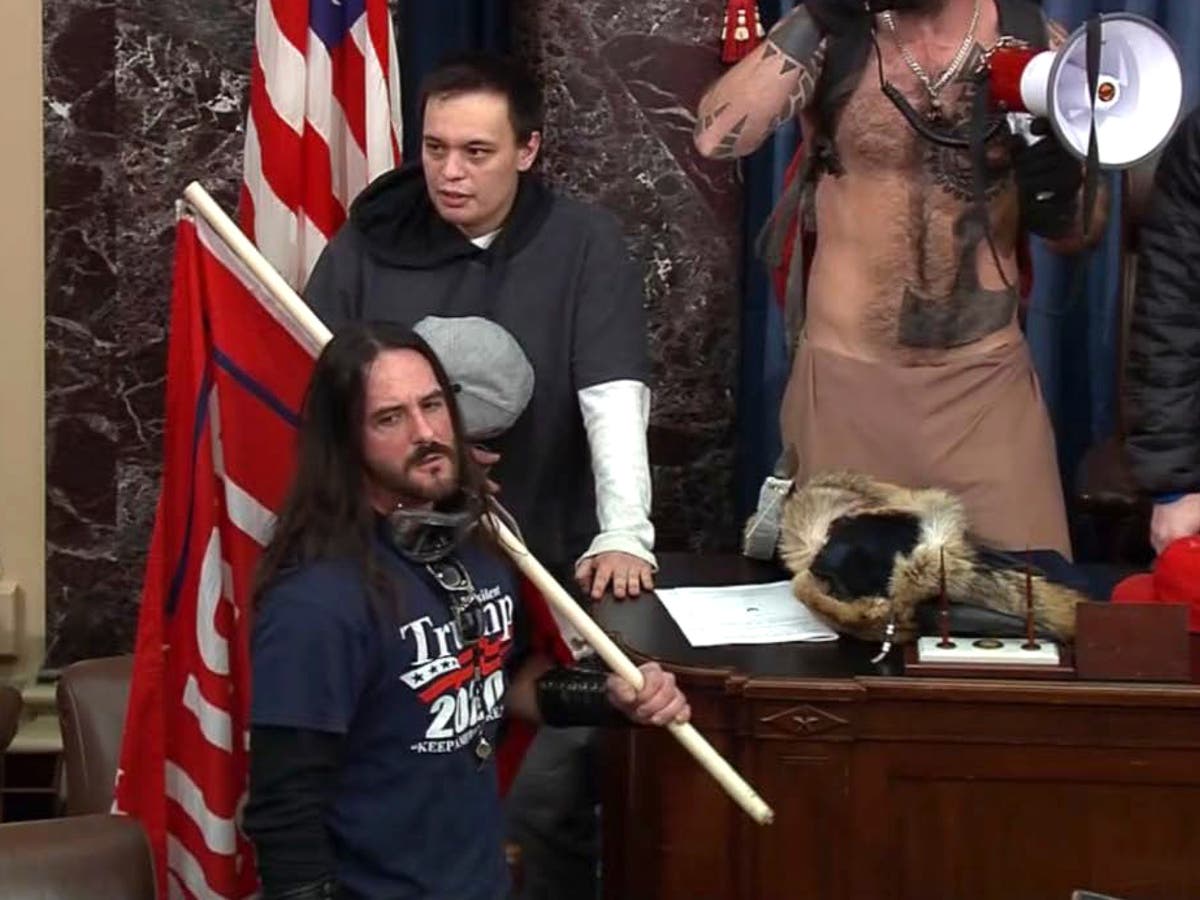‘Democracy is in trouble,’ Judge tells first person sentenced for Capitol riot felony

The judge who sentenced the first person for a felony following the Capitol riot said “democracy is in trouble” as he handed down the decision.
“Democracy requires the cooperation of the governed,” US District Judge Randolph Moss said. “When a mob is prepared to attack the Capitol, to prevent our elected officials from both parties from performing their constitutional and statutory duty, democracy is in trouble.”
Capitol rioter Paul Allard Hodgkins, who entered the Senate chamber during the insurrection, was sentenced to eight months in prison on Monday after prosecutors argued he should have received an 18-month term. Last month, Hodgkins pleaded guilty to one count of obstructing an official proceeding.
Judge Moss said the damage done by the pro-Trump mob on 6 January “will persist in this country for decades”.
Before the sentencing, Hodgkins’ attorney asked Judge Moss not to give his client a prison term, arguing that the shame will be connected to his client for the rest of his life and that it should be included in the punishment consideration.
“Whatever punishment this court may provide will pale in comparison to the scarlet letter Mr Hodgkins will wear for the rest of his life,” lawyer Patrick Leduc argued in a recent legal filing.
He was referencing a novel by Nathaniel Hawthorne in which a woman accused of adultery has to wear the letter “A”.
Mr Leduc filed a 33-page document ahead of the sentencing, including several pages about the Civil War, citing Abraham Lincoln calling for reconciliation in the weeks before he was assassinated.
Judge Moss’ sentence also included $2.000 of restitution to be paid, as well as two years of supervised release.
“Sentencing is always a very challenging task, and the court here had to consider both what I think are the extremely damaging events that occurred that day, but also who Mr Hodgkins is as an individual,” Judge Moss said on Monday. “I tried to strike that balance.”
Hodgkins made it onto the senate floor, carrying a Trump flag and wearing a Trump T-shirt just moments after lawmakers and then-Vice President Mike Pence left the chamber.
“The symbolism of that act is unmistakable,” Judge Moss said. “He was staking a claim on the floor of the United States Senate not with an American flag, but with a flag declaring his loyalty to a single individual over the nation.”
“In that act, he captured the theft of democracy that we all witnessed that day,” he added.
Judge Moss noted that Hodgkins was the first rioter to be sentenced for a felony stemming from the insurection and that there was no benchmark to follow when deciding on a punishment, but added that he was sentencing one person and not “everyone else who was present there on that day”.
The judge quoted author Margaret Bayard Smith – born in 1778 – who wrote that the inauguration of Thomas Jefferson in 1801 was “one of the most interesting scenes a free people can ever witness”.
“The changes of administration, which in every government and in every age have most generally been epochs of confusion, villainy and bloodshed, in this our happy country take place without any species of distraction, or disorder,” she wrote.
The judge said Ronald Reagan, who served as president from 1981 to 1989, made a similar point when he said the peaceful transfer of power was “nothing less than a miracle”.
“The attack on the Capitol on January 6, in which Mr Hodgkins actively participated, at the very least tarnished that happy history,” Judge Moss said.
“It means that it will be harder today than it was seven months ago for the United States and our diplomats to convince other nations to pursue democracy,” he added.
“It means that it will be harder for all of us to convince our children and our grandchildren that democracy stands as the immutable foundation of this nation.
“It means that we are now all fearful about the next attack in a way that we never were. It makes us question whether our democracy is less secure than what we previously believed just seven months ago.
“Those are all enormous harms that were caused by the events that day.”






